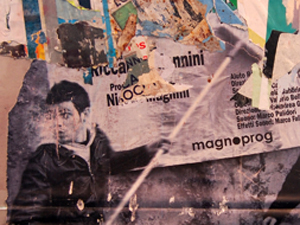In this inaugural issue, Lateral takes the form of a cluster of four research threads. The initial threads converge around a consideration of knowledge formations, institutional and material location, and political intervention and implication. The initial four threads are meant as an exploration of what is possible and an invitation for further work. Theory and Method, curated by Patricia Clough, treats various forms of knowing and being in cultural studies research. Creative Industries, curated by Jaafar Aksikas, invites composite methodological approaches to intersectoral flows inside and outside the university. Universities in Question, curated by Bruce Burgett and Randy Martin, decenters established claims for disciplinary, labor, and political economic legitimations for higher education. Mobilisations, Interventions, and Cultural Policy curated by Emma Dowling, pursues current transformational activisms to rethink values of polity, policy, and participation.
Keyword: interventions
Introduction: Mobilisations, Interventions, and Cultural Policy
There are four themes that weave their way through the research thread on Mobilisations, Interventions, and Cultural Policy in this issue. First, there is concern with intervention—intervention into the politics and practices of social movements and intervention into the academy and its traditions of knowledge production. Second, each text is situated firmly within a recognition and appreciation of social movements as knowledge producers. Third, all three contributions are unequivocally located in an urban context and the contemporary condition of inhabiting the city. Finally, what emerges from each reflection is a commitment to militant research and practice, as one that keeps ever-present an awareness of the relationship of research to existing material social relations of power and a commitment to confronting and transforming these very relations.
Postcool
Francesco Salvini asks what it means to translate the categories of postcolonial thought in the practices of organisation of a subaltern neighbourhood trapped in the hurricane of valorisation and abstraction of urban space. Salvini presents an analysis of what he calls an ‘audio-visual inquiry’ conducted by a collective of political activists organising in the Raval in Barcelona. The laboratory of Postcool sought to find ways to learn about the subaltern histories of the Raval that are made invisible. Salvini discusses the ways in which the collective investigated how these subaltern histories of the Raval inscribe themselves in the urban design of the city in their relevance for organising against gentrification in the context of postcolonial capitalism.
